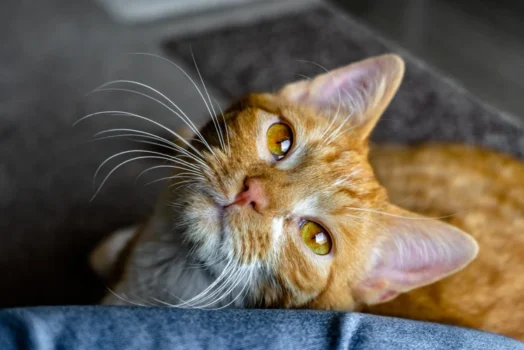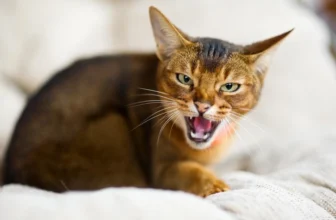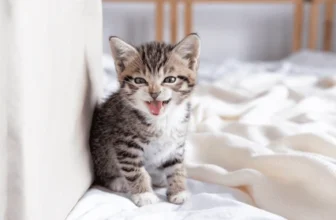It’s not uncommon for American Wirehairs to meow excessively, and it may be a cause of concern for their owners. While there can be a number of reasons for excessive meowing, some medical conditions may be the underlying cause. In this article, we’ll explore some of the medical reasons that can lead to excessive meowing in American Wirehairs. From hyperthyroidism to urinary tract issues, we’ll cover the symptoms and treatments of each condition to help you better understand and address your furry friend’s health concerns. So let’s dive in and help alleviate any perplexity you may have about your American Wirehair’s excessive meowing.
Hyperthyroidism

Hyperthyroidism Can Cause Excessive Meowing in American Wirehairs
Hyperthyroidism is a medical condition that can cause excessive meowing in American Wirehairs, which could be a sign of discomfort or pain. This condition affects the thyroid gland, which is located in a cat’s neck, and produces too much of the hormone that regulates metabolism. Hyperthyroidism is relatively common in older cats and can be caused by a variety of factors, including genetics, diet, and exposure to certain chemicals. If left untreated, this condition can lead to serious health problems and may even be life-threatening. It is essential for American Wirehair owners to be aware of the symptoms and treatment options for hyperthyroidism.
Symptoms of Hyperthyroidism
Hyperthyroidism is a medical condition in which the thyroid gland produces too much of the thyroid hormone, leading to an overactive metabolism. This excess of thyroid hormone can cause several symptoms in your American Wirehair. Some of the symptoms of hyperthyroidism in American Wirehairs are:
- Excessive meowing: Cats with hyperthyroidism may vocalize more than usual, and their meows may become more frequent or louder.
- Increased appetite: Your cat may have an insatiable hunger and may beg for food even after a meal.
- Weight loss: Despite eating more than usual, your cat may lose weight due to the increased metabolic rate.
- Restlessness: Your cat may become more active and restless due to the increased energy levels.
- Excessive grooming: Cats with hyperthyroidism may groom themselves excessively leading to hair loss and bald patches.
- Increased thirst and urination: Your cat may drink more water than usual and may urinate more frequently.
If you notice any of these symptoms in your American Wirehair, it is important to take them to a veterinarian for diagnosis and treatment. Early diagnosis and treatment of hyperthyroidism can help avoid complications such as heart disease, blindness, and high blood pressure.
Link: If your American Wirehair is experiencing excessive meowing, it is essential to check for hyperthyroidism.
Treatment of Hyperthyroidism
Hyperthyroidism can be a severe medical condition in American Wirehairs that causes excessive meowing. The key to treating hyperthyroidism in cats is to control the production of thyroid hormones. Treatment options for hyperthyroidism include, but are not limited to, the following:
- Medication: Antithyroid drugs such as methimazole can be used to reduce the production of thyroid hormones in cats. These drugs should be administered carefully, and regular monitoring of the cat’s thyroid hormone levels is essential for determining the correct dose.
- Radioactive iodine therapy: This treatment option involves administering radioactive iodine, which is taken up by the thyroid tissue and destroys it. This procedure can result in a cure for hyperthyroidism in cats, but it is expensive and requires hospitalization for several days.
- Surgery: Thyroidectomy is another procedure that can be used to remove the thyroid gland surgically. The surgery is typically performed under general anesthesia and requires hospitalization. This treatment option is not suitable for all cats and may have potential risks and complications.
If your American Wirehair has been diagnosed with hyperthyroidism, it is essential to discuss with your veterinarian which treatment options are best suited for your cat based on their medical history, age, and overall health. Proper treatment of hyperthyroidism can help prevent long-term complications that can arise from the disease and reduce excessive meowing.
Hearing Loss
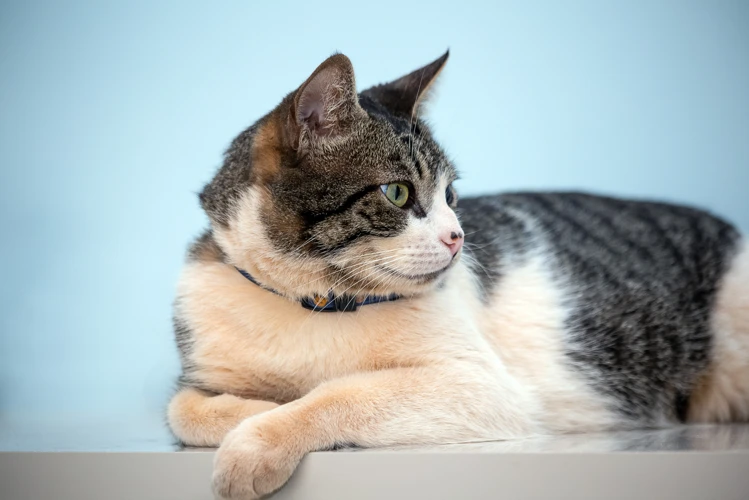
Hearing is a vital sense for everyone, including our feline friends. Unfortunately, American Wirehairs can experience hearing loss, which can lead to excessive meowing and other behavioral changes. It can be perplexing for pet owners who may not understand the sudden behavioral changes they are observing. In this section, we will discuss the symptoms, causes, and treatments of hearing loss in American Wirehairs. We will also provide tips on how to manage excessive meowing caused by hearing loss. To learn more about excessive meowing in American Wirehairs, check out our comprehensive guide.
Symptoms of Hearing Loss
Hearing loss is another medical condition that can result in excessive meowing in American Wirehairs. Cats rely heavily on their sense of hearing to communicate with their owners and other feline companions. When a cat begins to lose their hearing, they may develop an increase in meowing as they try to compensate for their lost ability.
Some of the common symptoms of hearing loss in American Wirehairs include responding less to sounds, not reacting to their name being called, sleeping more than usual, acting startled when touched from behind, and meowing excessively. These symptoms can start to develop gradually, so it’s important to pay attention to your cat’s behavior and identify any changes in their hearing ability.
In some cases, hearing loss in cats can be attributed to aging. However, there are also other underlying medical conditions that can cause hearing loss, such as infections or injuries to the ears. Additionally, certain medications or exposure to loud noises over time can also contribute to hearing loss in cats.
If you suspect that your American Wirehair is experiencing hearing loss, it’s important to schedule an appointment with the veterinarian to determine the root cause of the condition. Depending on the underlying cause, your vet may prescribe medications, suggest changes to your cat’s living environment, or recommend ear drops or topical treatments.
Since excessive meowing can also be a sign of other medical conditions, it’s important to seek professional help from a veterinarian to rule out any other potential issues. In the meantime, make sure to monitor your cat’s behavior closely and provide them with support and comfort to help them cope with their hearing loss.
One helpful tip to reduce excessive meowing in American Wirehairs is to establish a consistent daily routine. This can help reduce stress and anxiety levels in your cat, which can ultimately result in reduced meowing. Providing plenty of playtime and other forms of mental stimulation can also help keep your cat occupied and prevent excessive meowing. If you notice that your cat is particularly stressed or anxious, you may want to consider implementing a calming collar or diffuser to help them relax.
If you want to learn more about excessive meowing in American Wirehairs, check out our article on tips to reduce meowing in American Wirehairs.
Treatment of Hearing Loss
Hearing loss can be a challenging condition to treat in American Wirehairs. Since it’s not a curable condition, treating it involves managing and alleviating the symptoms. The good news is that your veterinarian can prescribe medication to support your American Wirehair’s hearing, and there are a few home remedies you can try as well.
Here are some of the most effective treatment methods for hearing loss in American Wirehairs:
- Antibiotics: If your cat’s hearing loss is caused by an ear infection, your veterinarian may prescribe antibiotics to treat the infection. This medication can help to reduce inflammation in the ear canal, restoring your American Wirehair’s hearing.
- Corticosteroid medications: Corticosteroids are a type of steroid medication that can reduce inflammation and swelling. These drugs are beneficial for reducing inflammation in your cat’s ear, and they can be especially helpful if your pet has an autoimmune condition that’s impacting their hearing.
- Ear cleaning: Regular cleaning of your cat’s ears can sometimes help manage the condition. Gently cleaning the ear canal with a cotton ball dipped in warm water may reduce the amount of buildup that may be causing the hearing loss.
- Acupuncture: Yes, acupuncture can help some pets with hearing loss, as it can increase blood flow and decrease inflammation. Although it’s not a common treatment for hearing loss, it’s worth discussing with your vet.
- Omega-3 fatty acids: Omega-3 fatty acids are known to have anti-inflammatory properties, and they can help to manage inflammation in your cat’s ear. Adding omega-3s to your cat’s diet can be helpful for mitigating symptoms of hearing loss.
It’s essential to remember to be patient when treating hearing loss in your American Wirehair cat as it may take some time for the treatment to work. Be sure to follow up with your veterinarian if your cat’s condition doesn’t improve or worsens despite treatment.
In the meantime, you can try different techniques and tips for managing your American Wirehair’s meowing tendencies. Check out /american-wirehair-meowing-tips/ to know more about reducing excessive meowing, understanding your cat’s body language and separation anxiety management.
Anxiety and Stress

As much as we adore our American Wirehairs, anxiety and stress can become an issue for them, leading to excessive meowing that can be a cause for concern. Like humans, American Wirehairs can be affected by changes in their environment and routines, causing feelings of unease and stress. Fortunately, there are several ways to combat anxiety and reduce excessive meowing. Let’s take a closer look at some of the symptoms of anxiety and stress in American Wirehairs, as well as effective treatment methods to help alleviate their discomfort. If you would like to learn more about American Wirehair behavior, their body language and how to train them to meow less, check out our relevant articles here, here, and here.
Symptoms of Anxiety and Stress
Anxiety and stress can be caused by a variety of factors, including changes in the environment and routine, separation from family members, or the presence of other pets. Excessive meowing is just one of many symptoms that can be attributed to anxiety and stress in American Wirehairs. Here are some other symptoms to look out for:
| Symptom of Anxiety and Stress in American Wirehairs | Description |
|---|---|
| Increased vocalization | American Wirehairs may meow more than usual or make other noises, like crying or yowling. |
| Loss of appetite | American Wirehairs may stop eating or refuse to eat their usual amount of food if they’re feeling anxious or stressed. |
| Aggression or irritability | American Wirehairs may lash out at their owners or other pets if they’re feeling particularly stressed or anxious. |
| Urinating or defecating outside of the litter box | American Wirehairs may not use their litter boxes if they’re feeling anxious or stressed. |
| Excessive grooming or overstimulation | American Wirehairs may groom themselves excessively or engage in destructive behaviors, like scratching furniture, if they’re feeling anxious or stressed. |
| Withdrawal or hiding | American Wirehairs may hide under furniture or avoid contact with their owners if they’re feeling particularly anxious or stressed. |
If you notice any of these symptoms in your American Wirehair, it’s important to talk to your veterinarian about treatment options for anxiety and stress. These may include behavioral changes, like providing more playtime or environmental enrichment, or medication in severe cases. But remember, it’s always best to consult with a professional before making any decisions about your pet’s health.
Want to learn more about American Wirehairs? Check out our other articles on excessive meowing or how to reduce excessive meowing through playtime.
Treatment of Anxiety and Stress
When it comes to treating anxiety and stress in American Wirehairs, there are various options available depending on the severity of the condition. Below is a table outlining the different treatment options and their effectiveness:
| Treatment Option | Effectiveness |
|---|---|
| Environmental enrichment | Effective |
| Behavior modification | Effective |
| Prescription medication | Varies – may have side effects |
Environmental enrichment, such as providing plenty of toys and opportunities for play, can be a highly effective treatment option for anxiety and stress in American Wirehairs. Additionally, behavior modification techniques such as positive reinforcement and desensitization can help to reduce stress levels.
While prescription medication can also be an option, it’s important to note that not all cats respond well to these treatments and they may have unwanted side effects. It’s always recommended to consult with a veterinarian before starting any medication regimen for your American Wirehair.
It’s also worth considering holistic treatment options, such as aromatherapy and herbal remedies, which may offer some relief for cats experiencing anxiety and stress. These approaches can be used alone or in conjunction with other treatment options to provide a more comprehensive and effective treatment plan for your feline friend.
Urinary Tract Issues
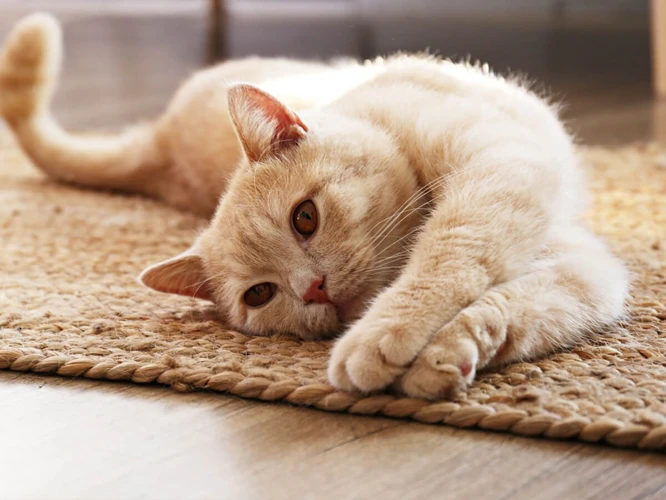
When our furry friends become too vocal, it can be a cause for concern. While meowing is a common thing for cats, excessive meowing can be a sign of an underlying medical condition. In the case of American Wirehairs, urinary tract issues can sometimes be the culprit. These issues can be painful and uncomfortable for your feline friend, so it’s essential to recognize the symptoms and seek treatment promptly. Let’s delve deeper into the world of urinary tract issues in American Wirehairs and find out what you can do to help your furry companion.
Symptoms of Urinary Tract Issues
Urinary tract issues can manifest in a variety of symptoms in American Wirehairs. Some of the common symptoms include:
| Symptom | Description |
|---|---|
| Painful urination | The cat may cry or meow during urination, experience discomfort, or lick excessively in the genital area. |
| Frequent urination | The cat may need to urinate more often than usual, producing only small amounts of urine each time. |
| Blood in the urine | The urine may appear reddish or pinkish due to the presence of blood, indicating damage or inflammation in the urinary tract. |
| Straining to urinate | The cat may exhibit discomfort or pain during urination, take a long time to urinate, and may only produce a few drops of urine. |
| Licking the genital area | The cat may excessively groom the genital area, which may signal pain or discomfort during urination. |
It is important to note that some of these symptoms can also be seen in other medical conditions, such as bladder stones or urinary tract infections. It is crucial to consult with a veterinarian to accurately diagnose and treat any urinary tract issues in American Wirehairs.
Treatment of Urinary Tract Issues
When it comes to treating urinary tract issues in American Wirehairs, the approach will depend on the exact cause of the problem. Here are some common treatments that may be recommended by your veterinarian:
1. Antibiotics: If the urinary tract issues are caused by a bacterial infection, antibiotics are usually the go-to treatment. Your vet may also recommend a special diet to help promote urinary tract health.
2. Surgery: If there is a blockage in the urinary tract, such as bladder stones or a urethral blockage, surgery may be necessary to remove the blockage and allow urine to flow freely.
3. Pain management: Urinary tract issues can be painful, and so pain management may be a part of the treatment plan. This may include pain medications or anti-inflammatory drugs.
4. Fluid therapy: Making sure your American Wirehair is getting enough fluids is important for supporting urinary tract health. Your vet may recommend additional fluids or intravenous (IV) fluids to help flush out the urinary tract.
5. Lifestyle changes: In some cases, changes to your cat’s lifestyle and environment may be necessary to prevent urinary tract issues from recurring. This may include switching to a low-stress environment, providing litter boxes in multiple locations, and encouraging your cat to drink more water.
It’s important to follow your veterinarian’s advice closely when it comes to treating urinary tract issues in your American Wirehair. Left untreated, urinary tract issues can progress and lead to serious complications, so early intervention is key.
Other Medical Conditions
As much as we’d like our American Wirehairs to be in tip-top shape, not all feline companions may be so lucky. Despite being prone to fewer health issues than other breeds, these lovable cats may sometimes display unusual behavior such as excessive meowing when experiencing certain medical conditions. Let’s take a closer look at some of these medical conditions that, if left untreated, can cause discomfort and affect your furry friend’s quality of life. In this section, we’ll discuss three medical conditions in particular that may be causing your American Wirehair to excessively meow: diabetes, kidney disease, and oral pain.
Diabetes
Diabetes is a medical condition that affects the body’s ability to produce or respond to insulin. In American Wirehairs, diabetes can cause excessive meowing as a result of increased thirst and urination. Here are some of the symptoms of diabetes in American Wirehairs:
- Increased thirst: American Wirehairs with diabetes may drink more water than usual, leading to frequent trips to the water bowl.
- Frequent urination: With increased water intake comes increased urine output. American Wirehairs with diabetes may need to urinate more often.
- Weight loss: Despite an increased appetite, American Wirehairs with diabetes may lose weight due to the body’s inability to process glucose effectively.
- Change in appetite: American Wirehairs with diabetes may experience an increased or decreased appetite.
- Lethargy: Diabetes can cause American Wirehairs to feel tired and sluggish, leading to less activity and more sleeping than usual.
If you notice any of these symptoms in your American Wirehair, it’s important to take them to the vet for testing. If left untreated, diabetes can lead to serious health complications. Treatment for diabetes in American Wirehairs typically involves insulin therapy, dietary changes, and exercise management. With proper care, American Wirehairs with diabetes can lead happy and healthy lives.
Kidney Disease
Kidney disease can also cause excessive meowing in American Wirehairs. The kidneys play a crucial role in removing waste and extra water from the body, and when they fail to function properly, it can lead to a buildup of toxins in the blood, causing a range of symptoms that may include excessive meowing.
Symptoms of Kidney Disease:
When the kidneys are not functioning properly, it can lead to a range of symptoms that may include:
- Excessive meowing
- Lethargy
- Loss of appetite
- Vomiting
- Weight loss
- Increased thirst and urination
Treatment of Kidney Disease:
The treatment for kidney disease in American Wirehairs involves addressing the underlying condition. Medications may be prescribed to help manage symptoms and slow the progression of the disease. In severe cases, surgery and other advanced medical treatments may be necessary.
| Treatment Options | Description |
|---|---|
| Dietary changes | Your vet may recommend a special diet that is low in protein and phosphorus to help protect the kidneys from further damage and improve your cat’s overall health. |
| Fluid therapy | Your vet may recommend that your cat receives fluids subcutaneously (under the skin) or intravenously (through a vein) to help flush toxins out of the body. |
| Medications | Your vet may prescribe medications to help manage symptoms such as hypertension or anemia. |
| Surgery | In severe cases, surgery may be necessary to remove damaged tissue or to place a stent to help keep the ureters (tubes that carry urine from the kidneys to the bladder) open. |
It is important to note that kidney disease is a serious condition that requires prompt medical attention. If you suspect that your American Wirehair is suffering from kidney disease, contact your veterinarian right away to discuss diagnosis and treatment options.
Oral Pain
Oral pain is another medical condition that can cause excessive meowing in American Wirehairs. This pain can be caused by various dental issues such as gum disease, tooth decay, and gum inflammation. American Wirehairs are susceptible to oral pain as they have a tendency to build up tartar and plaque on their teeth, which can lead to further dental problems.
If your American Wirehair is experiencing oral pain, they may excessively meow as a way to seek attention and express their discomfort. Other symptoms of dental issues in cats include bad breath, drooling, and reluctance to eat hard foods.
Immediate treatment is necessary for oral pain in American Wirehairs. A visit to the veterinarian is recommended to identify the cause of oral pain and determine the best course of treatment. Depending on the severity of the dental issue, treatment may include teeth cleaning, extraction of damaged teeth, and medication.
To prevent future dental problems, it is important to regularly brush your American Wirehair’s teeth and schedule routine dental checkups with a veterinarian. You may also consider providing your cat with dental treats and toys to help remove tartar buildup and maintain their oral health.
Key takeaways:
- Oral pain is a common medical condition in American Wirehairs that can cause excessive meowing due to discomfort.
- Symptoms of dental issues in American Wirehairs include bad breath, drooling, and reluctance to eat hard foods.
- Immediate treatment is necessary for oral pain, including a visit to the veterinarian and potential teeth cleaning, extraction, or medication.
- Prevent future dental problems by regularly brushing your American Wirehair’s teeth, scheduling routine dental checkups, and providing dental treats and toys.
Conclusion
In conclusion, excessive meowing in American Wirehairs can be caused by a variety of medical conditions. If your cat is exhibiting excessive meowing or any other abnormal behaviors, it is important to take them to a veterinarian for a professional diagnosis.
Once a diagnosis is made, there are a variety of treatments available, including medication and lifestyle changes. It is important to follow the treatment plan recommended by your veterinarian in order to ensure the best possible outcome for your pet.
It is also important to note that some of these medical conditions, such as hyperthyroidism and kidney disease, are more common in older cats. Therefore, it is important to schedule regular check-ups with your veterinarian as your cat ages in order to catch any potential medical issues early on.
In addition to medical conditions, environmental factors such as stress and anxiety can also contribute to excessive meowing. Therefore, it is important to provide your pet with a comfortable, stress-free living environment and plenty of mental and physical stimulation.
Overall, being aware of the potential medical conditions that can cause excessive meowing in American Wirehairs and seeking veterinary care when necessary can help ensure that your pet remains happy and healthy for years to come.
Frequently Asked Questions
What is excessive meowing in American Wirehairs?
Excessive meowing in American Wirehairs is when your cat is meowing more than usual or for no apparent reason.
Can medical conditions cause excessive meowing in American Wirehairs?
Yes, medical conditions can cause excessive meowing in American Wirehairs.
What are the common medical conditions that can cause excessive meowing in American Wirehairs?
The common medical conditions that can cause excessive meowing in American Wirehairs are hyperthyroidism, hearing loss, anxiety and stress, and urinary tract issues.
Can hyperthyroidism cause excessive meowing in American Wirehairs?
Yes, hyperthyroidism can cause excessive meowing in American Wirehairs.
What are the symptoms of hyperthyroidism in American Wirehairs?
The symptoms of hyperthyroidism in American Wirehairs are weight loss, increased appetite, increased thirst, and hyperactivity.
What is the treatment for hyperthyroidism in American Wirehairs?
The treatment for hyperthyroidism in American Wirehairs may include medication, surgery, or radioactive iodine therapy.
Can hearing loss cause excessive meowing in American Wirehairs?
Yes, hearing loss can cause excessive meowing in American Wirehairs.
What are the symptoms of hearing loss in American Wirehairs?
The symptoms of hearing loss in American Wirehairs are decreased response to sounds, increased vocalization, and confusion.
What is the treatment for hearing loss in American Wirehairs?
The treatment for hearing loss in American Wirehairs may include medication, surgery, or hearing aids.
Can anxiety and stress cause excessive meowing in American Wirehairs?
Yes, anxiety and stress can cause excessive meowing in American Wirehairs.

